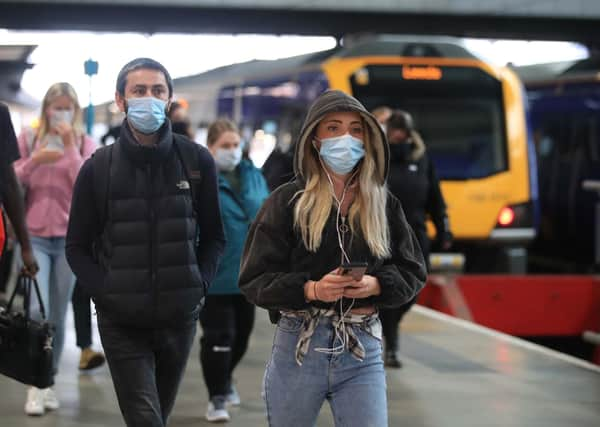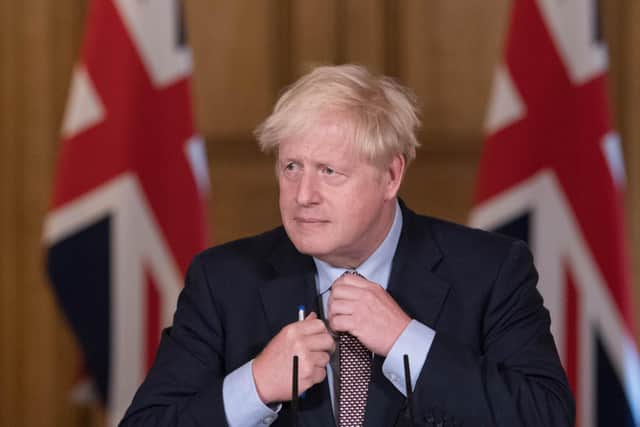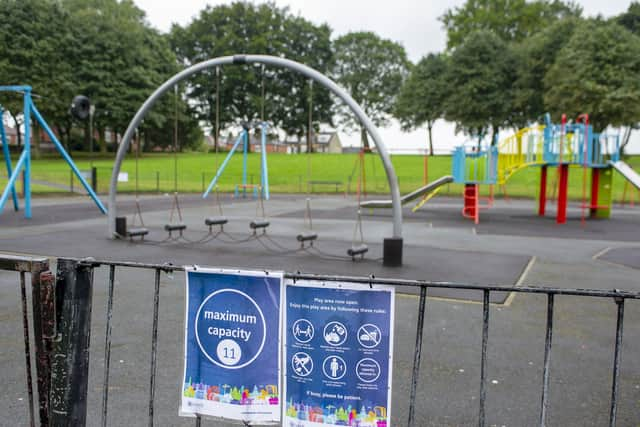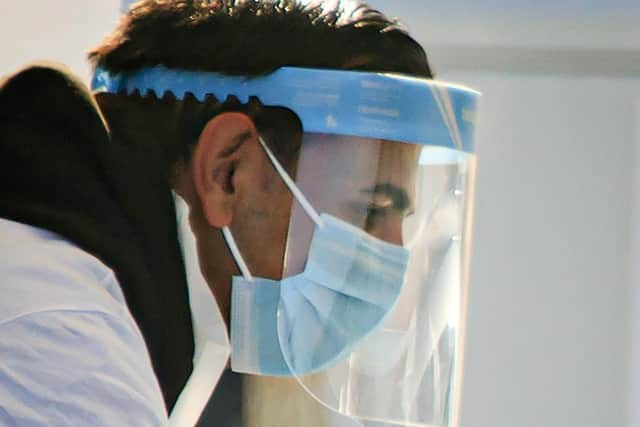Boris Johnson’s virus response fails these three key tests – David Blunkett


I am not talking here about medical or scientific measures to lessen the impact for those contracting Covid or the chance of an early rollout of an effective vaccine, but rather the here and now.
My own view is that there are three markers of recovery. These are confidence, clarity and consistency.
Advertisement
Hide AdAdvertisement
Hide AdAt the moment I feel that the Government has fallen short on all three.


There has been substantial turnaround in respect of getting children back into school, but we have no sooner managed to achieve something positive when heads pop up with doomsday scenarios.
It is, of course, not surprising that those who have been on furlough will feel normal human reactions to returning to the workplace. I thought the same in July when I returned to London to participate in the hybrid House of Lords.
As I indicated in an earlier column, some people will be able to work from home effectively permanently, or at least for part of the week, but I am extremely dubious about the claim that this will be a substantial number of those who are now requested to return to their desks.
Advertisement
Hide AdAdvertisement
Hide AdAnd, if workers in any profession do so wholly from home, why wouldn’t companies outsource that work to appropriate, and professionally trained employees, in locations across the world that are much less expensive?


In other words, not returning to work is a substantial own goal which demonstrates a total lack of clear thinking.
Take the University and College Union (UCU) that represents lecturers in further and higher education.
I used to be part of the predecessor trade union and, therefore, I was particularly horrified at the pronouncement they made a couple of weeks ago, followed up by extensive coverage by the BBC, of a lecturer from University College London, worrying themselves stiff about students returning to university.
Advertisement
Hide AdAdvertisement
Hide AdThis is where clarity comes in. Yes, there will inevitably be a higher level of risk as students traverse the country to register. Whilst they will form their own particular bubbles in terms of the modules they are taking, and the social groups they form, there will be greater, but low risk.


The potential impact to lecturers can be minimised, but the idea that we should discourage – in any way – students from home or from abroad is risible.
Not only are domestic and overseas students essential to cross subsidise research and the survival of our universities, but they are also essential for our local economies and the future of our inner cities.
I don’t intend to go over old ground, but suffice it to say that if you took a staycation, you managed to get a holiday abroad or you were regularly out taking advantage of the Chancellor of the Exchequer’s largesse in terms of the subsidy on meals, that you hopefully complimented all those who were working.
Advertisement
Hide AdAdvertisement
Hide AdSo, building confidence is really important. That means that our broadcast media, in particular, should start to look for good news stories, rather than constantly reporting doom and gloom.
However the Government is now speaking with some welcome clarity. The message has been simplified and implementation made easier. But less so our attitude as a nation in relation to quarantine.
The Germans quarantine when outbreaks hit 50 per 100,000 of the population. The UK, and at least on this we have been consistent, uses 20 per 100,000.
Each of the nations of the UK has gone its own way on quarantine and what a mess it is given that effectively this should be about people’s movements, our borders and controls.
Advertisement
Hide AdAdvertisement
Hide AdYou would think that this should fall to the Westminster government alone, but, sadly, it doesn’t.
There again, the lack of interest in what’s happening to aviation, to the destruction of home-based airlines and our airports (including those in Yorkshire), is extremely worrying. We’re talking capacity for the future here, which is why of course the French are subsidising Air France and the Germans supporting Lufthansa!
This brings me to the importance of consistency. It is to be hoped that the new measures announced this week give an easily understood message about social contacts.
We clearly had some upsurge in cases in West Yorkshire, and a week ago, substantial interest in what was happening in Leeds. But we are, in cities like Leeds, Bradford and Sheffield, talking about very large conurbations.
Advertisement
Hide AdAdvertisement
Hide AdShould local lockdowns be more about particular localities within defined areas rather than the whole of the boundaries of an administrative area?
That would be consistent with a bubble in a school being quarantined or the welcome emphasis of targetting specific Greek islands rather than the entire country.
This brings us back to Boris Johnson’s ‘world class’ test and trace. And the app. That’s the app that is no longer part of test and trace, the latest national endeavour overseen by Baroness Dido Harding.
You will recall that she once oversaw TalkTalk and will now oversee the new National Institute for Public Health, reversing at a stroke the shambolic changes introduced by the then Conservative Health Secretary, Andrew Lansley, in 2012.
Advertisement
Hide AdAdvertisement
Hide AdWell, you have got to hand it to the Government for one aspect of consistency. They consistently give jobs to their friends. On that – and that alone – there’s absolute clarity.
David Blunkett is a Labour peer and former Home Secretary.
Support The Yorkshire Post and become a subscriber today.
Your subscription will help us to continue to bring quality news to the people of Yorkshire. In return, you’ll see fewer ads on site, get free access to our app and receive exclusive members-only offers.
So, please - if you can - pay for our work. Just £5 per month is the starting point. If you think that which we are trying to achieve is worth more, you can pay us what you think we are worth. By doing so, you will be investing in something that is becoming increasingly rare. Independent journalism that cares less about right and left and more about right and wrong. Journalism you can trust.
Thank you
James Mitchinson
Comment Guidelines
National World encourages reader discussion on our stories. User feedback, insights and back-and-forth exchanges add a rich layer of context to reporting. Please review our Community Guidelines before commenting.